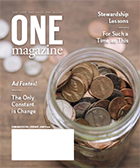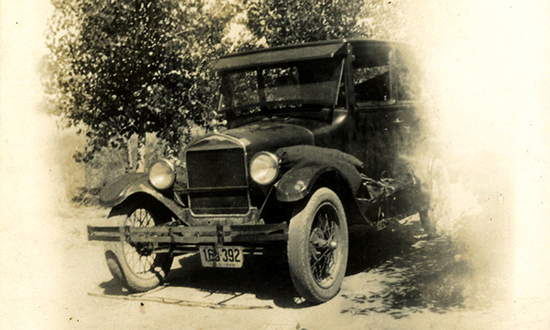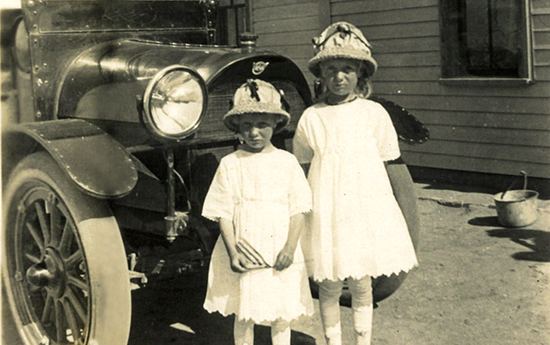
February-
March 2018
Stewardship
Lessons
------------------
|






FIRST GLIMPSE: Washing Plastic Plates
My grandmother, my dad's mother, never wasted anything. On special occasions and holidays, she often washed the colorful plastic plates and utensils and tucked them away for future use. When we protested, she just smiled and kept rinsing her plastic prizes. Once, when I pressed her, she responded simply, "If you had lived through the Depression, you would understand."
A polite grandson, I nodded and returned her smile, but she was right; I certainly didn't understand. Why leave the Limoges on the shelf or hide the Homer Laughlin dinnerware in the closet in favor of secondhand plastic? I chalked it up to 40 years on a side hill farm in the Ozark Mountains of northwest Arkansas.
It wasn't until grandma passed, while helping my parents sort (seemingly endless) boxes of paperwork, that I ran across a story that gave me insight into her waste-not, want-not approach to life. Written (appropriately) in a journal made of Raisin Bran cereal boxes, I found the following account in her scratchy writing:
After the stock market crashed in 1929, the Great Depression fell across the country, reaching all the way to our little community near Denver. During those days, many went to bed hungry. Dad began to buy day-old bread from a large bakery, supposedly to feed the animals on the farm. He paid one cent per loaf for the bread. While he could not resell the bread, he left many bags and boxes on porch steps. It was my privilege to place the containers and dash back to the truck before Dad would drive on to the next location. That old cattle truck served many purposes.
The bakery soon figured out what Dad was doing, and they began to pack a stick of hard candy into the groove in the top of each day-old loaf. It was a great treat for children who had little else to enjoy. For some, those loaves were the only food on the table. But the best part was that Dad trusted me with his secret, and it was a big one. I knew it was a big sacrifice on his part. We didn’t have much money ourselves, and a penny was worth a lot
in those days.

It was moments like these that shaped my grandmother (pictured above, left, in front of her dad's truck) into a conscientious steward of what God put into her care. While grandma never shared a “financial philosophy” with me—and I doubt she would have thought of it that way—her actions spoke it clearly. She loved God, served people, and used things…even recycled plastic plates.
About the Columnist: Eric K. Thomsen is managing editor of ONE Magazine and president of the Evangelical Press Association. Email: eric@nafwb.org.
|
|

